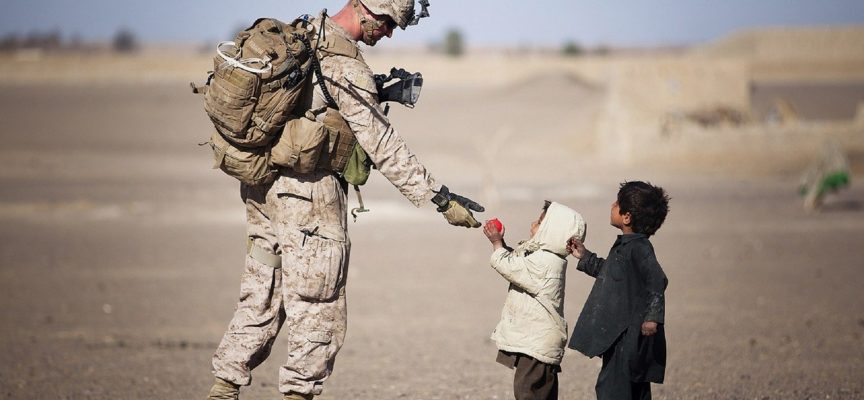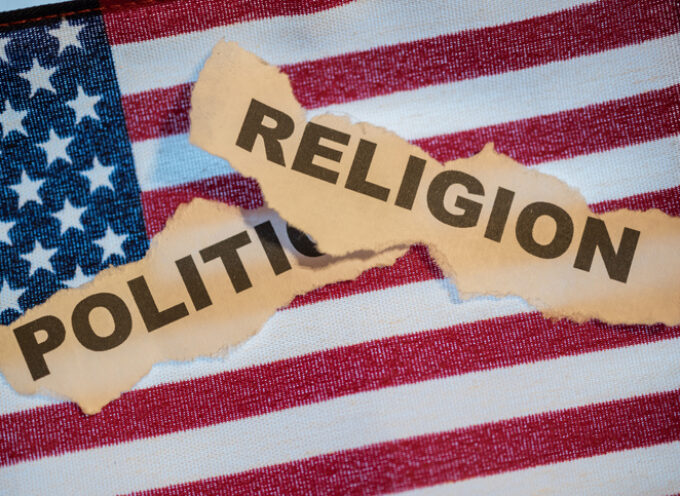Of the three logical categories in the ethics of warfare—pacifism, jihadism/crusaderism/militarism, and just war—the just war tradition alone is properly realistic. It is anthropologically realist, in that it alone recognizes the limits to what can be achieved in a world populated with finite and fallen humans. Evil cannot be eradicated, neither by laying down our weapons (pacifism) nor by picking them up (jihadism). Neither can it be eradicated through technical or rational means.
The just war tradition is also practically realist. Nigel Biggar summarizes well when he writes that the just war tradition alone “faces squarely the evils, tragedies, ambiguities, risks, and uncertainties of war, and laments them.” At the same time it “exposes the evils tragedies, ambiguities, risks, and uncertainties of peace.” In other words, we must be realistic about the moral ambiguities involved in both action and inaction.
As we will explore in future posts, the just war tradition can be seen in prototypical form in Eastern thinkers such as Lao Tzu and Sun Tzyu, but it has been developed primarily in the West from two foundational sources. The first is the Graeco-Roman tradition, including especially the writings of Plato, Aristotle, and Cicero. The second is the Christian tradition, including Augustine, Aquinas, and many others. Although pacifism and crusaderism can be found in Western history, the just war approach has always been the West’s primary model.
General Characteristics of the Just War Tradition
Proponents of the tradition define a war as just if it is a limited, morally necessary, short-term response to a specific injustice with the purpose of restoring a previous state of (relative) order. It is waged as a political, rather than religious or ideological, act. It is subject to moral limitations. Finally, a just war is initiated and conducted by the proper authorities, by those who are recognized as responsible for law and order.
Even when justified, war is thought capable only of achieving limited objectives rather than achieving religious or ideological ideals. Its ultimate goal is not to conquest, revenge, or vindictive punishment, but retribution, in the sense of achieving justice. For that reason, a just war is limited, targeted, and impartial.
Justice before War, during War, and after War
The just war tradition has developed criteria for deciding whether or not to go to war, how to wage war justly, and how to exit a war justly. Although many Western leaders, on the political left and right, have at times ignored or acted in contradiction to these principles, just war criteria nonetheless form the West’s predominant framework for talking about war and peace. Often these criteria remain in the background but sometimes, such as President H. W. Bush’s declaration of war against Saddam Hussein’s regime, they are brought to the forefront.
When political leaders are determining whether or not to go to war, the just war tradition has traditionally offered three core criteria: just cause, legitimate authority, and right intent. A war has just cause if it is responding to a specific act of injustice, such as the military aggression of a foreign nation against our nation or an allied nation. A legitimate authority is the political leader or civil body responsible for maintaining order and providing security. A war is waged with right intent if it wishes to restore a previous state of (relative) peace, but it is not morally upright if its goal is to enlarge one’s own territory or to punish or humiliate one’s opponents. Five other criteria—comparative justice, probability of success, proportionality of projected results, last resort, and right spirit—flow logically from the three core criteria.
While political and military leaders are overseeing a war, they do so justly if they demand from their warfighters adherence to certain criteria. Traditionally, there are two core criteria: discrimination and proportionality. A just war is one in which warfighters discriminate between combatants and non-combatants, refusing to target noncombatants’ lives or property. A just war is also waged proportionately, meaning that the military does not use more force than necessary to achieve legitimate military goals. Flowing from these two core criteria are five others: avoidance of evil means, good faith, probability of success, proportionality of projected results, and right spirit.
Finally, there must be justice in the way warfighters exit the theater of war. Some contemporary just war proponents have set forth very expansive criteria for exiting a war justly, but these expansive criteria usually lapse into an idealist form of thinking. Instead of such idealism, we should conceive of post-war justice as an extension of justice in war: on the way out of town, warfighters shouldn’t rape, pillage, and plunder. They should exit in a peaceful and orderly manner, respecting the society that populates the theater of war.
Conclusion
There are few statements more mistaken than “all is fair in love and war.” The moral law applies in every realm, including even the battlefield. Just as we would hope another nation would not attack us unprovoked just because they think we are “evil,” so we must not wage wars of crusade merely because we think their leaders are bad or their ways backward or uncivilized. Just as we would wish for an invading nation not to rape our women or poison our water supply, so we should not engage in such activities. However, none of this is to say that actual armed conflict is never necessary. Unjust and immoral actions against oneself and one’s neighbor should prompt us to act. Only a realist ethic with clear guidelines of acceptable action leading up to war, throughout its duration, and into its conclusion can provide us the legitimacy to call a war “just.”
Other articles in the “Ethics of Warfare” Series:
1. To Fight or Not to Fight? That is the Question.
2. What Kind of Peace Should America Seek in our War-Torn Era?
3. Why I am Peaceful but Not a Pacifist
5. Why I am a Proponent of the Just War Tradition
6. The “Founding Fathers” of the Just War Tradition
7. Seven All-Stars of the Just War Tradition
8. Recent Champions of the Just War Tradition
9. 8 Criteria for Deciding When It’s Right to Go to War
10. 7 Moral Criteria to Guide Commanders during Battle
11. How Do Just War Principles Apply to Terrorism & Asymmetrical Warfare?
12. How Do Just War Principles Apply to Drone Warfare?
13. Future War: How do We Prepare Ethically for Radically New Forms of Warfare on the Horizon?
14. The Ethics of Special Operations Warfighting
Subscribe
Never miss a post! Have all new posts delivered straight to your inbox.







